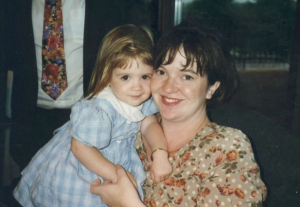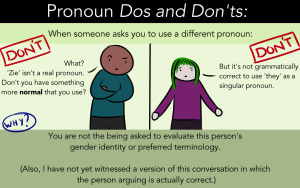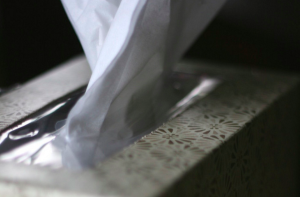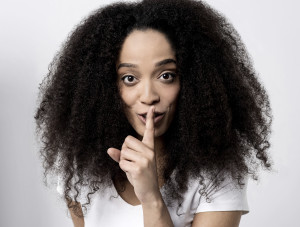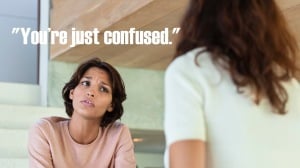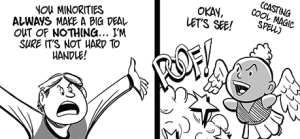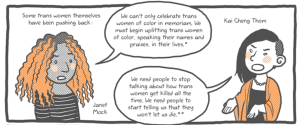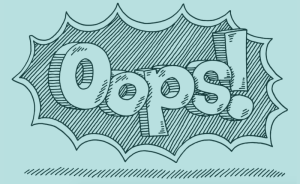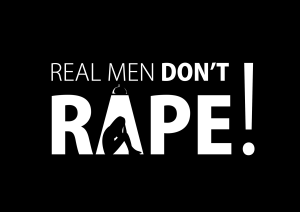Originally published on xoJane and republished here with their permission.
For as long as I can remember, people have told me that I was just like my mom. To me, it was one of the highest compliments — she was beautiful. But I know she didn’t feel the same.
Relationships between mothers and daughters are inherently complicated.
I can’t pretend to understand it fully, as I have only ever been on one side of the equation — existing entirely as daughter.
I was one of the lucky ones.I hear horror stories about friends whose moms put them down or push them to follow dreams that aren’t their own. That was never a problem of mine. I grew up surrounded by all of the love and dedication that I could have ever needed and probably more than I even wanted at some points.
My mom was always there. No matter where she and I went, everyone was always commenting on how much she and I looked alike. From doctors to waiters and cashiers — it didn’t matter — everyone saw me as her mini-me.
She would laugh and play along, saying that my younger sister looked just like my dad, so it was only fair. For a while, that was where the interactions ended for me.
It felt good to know that I looked like my mom. She was beautiful and happy and everyone loved her, why wouldn’t I want to look like her?
I don’t know when I first noticed that there was a part two to these compliments. Maybe it had been there all along, and I was just too caught up in the feel-good of being compared to my mom to notice. But either way, one day it was there and it never went away. After the compliment was over, and whoever pointed it out had walked away, there would always be a follow-up from my mom.
Sometimes it was, “See? You look just like me, so if you don’t want bad skin like this, you better use more sunscreen.”
Other times, “I have told you all along, you are just like me. You better not let yourself get fat like I did.”
Or, pointing to a spot right between her eyes, “Do you see this? You are going to get it too if you don’t stop squishing up your forehead.”
It took me a while to really understand what she meant by all of this. I mean, my mom’s skin was always soft and warm. She was way taller and stronger than I could have ever hoped to be. And I hardly ever noticed the wrinkles she had on her forehead. Her face was the same face I had looked at every day of my life, and I couldn’t possibly think of why she would want to change that.
Her reminders were consistent, and the message was clear. She didn’t like how she looked anymore.
But if everyone thought I looked exactly like her, wasn’t she seeing a reflection of those things she hated in me? These reminders made me no longer enjoy the compliments that I had once held so dear.
Eventually, I began to internalize my mom’s own self-criticism.
Every time my mom said something negative about herself, I saw it as a criticism of me. I know this wasn’t what she intended, but it is what I heard. It wasn’t fair to put this on my mom, but I did. She is entitled to her own her self-image, but because I felt like I was a direct reflection of her, my self-worth was tied to her self-acceptance.
As she ping-ponged from one unsuccessful diet to the next, I bounced along beside her. She never once told me I needed to lose weight (not even after I gained the freshman-15… or the sophomore-60), but every time my mom said she was unhappy with her weight, I felt disgusted with my own.
She and I are not the same; my mom is 24 years and two daughters ahead of me. But we are both women in this society, and as such, we are under the same pressures to effortlessly maintain the perfect body. Try as we might, neither of us will ever have that. We are a pair of works in progress, physically and psychologically.
But when I look at my mom, I don’t see a flawed body. In her skin, I see time spent basking in the sun, soaking in every last moment of daylight. Her stretched stomach sheltered me and my sister much to the chagrin of her formerly size-two waist. The skin on her arms hangs looser than it once did, but her muscles grew strong from carrying her babies to soothe them.
Those deep facial wrinkles that my mom fixates on — well, when I see those, I remember all of the laughter that we shared watching my little dog hop like a bunny through our backyard and the hours my mom sat, with furrowed brow, listening to me cry over breakup after breakup.
I want my mom to be happy, and I know for her that means losing weight. So, I support her in that journey. Just like she supports me in mine.
At 21 years old, I know that any issues I have with my body are entirely my own. My mom has no part in that.
I am working to be healthier, but I choose to love myself — and my body — through every step of the process. When I look at my own body, I think of all of the amazing things it has been able to do. I can surf and rock climb and swim in the ocean. I can get up every morning and walk to an internship that I love.
But more importantly, when I look at myself, I feel happy because I am reminded that I am a smart, capable, loving person, just like my mother and the women that came before me.
Despite all of this, sometimes, I catch myself looking in the mirror with the same critical eyes that my mother has for her own body. And I wonder why my skin can never seem to stay clear for more than a few days or why my waist isn’t noticeably shrinking even though I have been working to eat more healthfully.
I try to love myself always, but sometimes that is easier said than done. Most days are good days, but occasionally I find myself being incredibly critical of my appearance.
Right now, I don’t know if I want to have children of my own. I think so, but that seems so far away from the life I am living and the goals that I have for myself, that it is a little hard to think about.
If I do, I wonder how I will talk to them about body image.
With so much discussion about what it means to have a perfect body, it seems impossible that kids could shape their own self-image outside of the expectations of others.
But I wouldn’t want to play a role in creating negative standards to hold themselves to.
Even among my closest friends, conversations about the way we look at our bodies often feel tense and guarded — like being honest puts you at risk of hurting someone else. If these conversations are so hard, how hard must it be when one side is a child?
I realize now that all of my mom’s self-criticism and hate of her own body was her own way of confiding in me. She trusted me enough to be honest, and in turn I should have been supportive of her feelings like she has always been supportive of mine. It was never about me, it was about her. Never was she putting her pain onto me, I was taking it from her, a burden that she never wanted me to carry.
Still, every time I see her suck in her stomach when she stands in front of a mirror or try and smooth out the wrinkle between her eyes, I feel a twinge of sadness.
But not for me.
I feel sad that she can’t see what I see. I feel sad that she doesn’t see how beautiful she really is. But I just tell her that I think she looks great, and remind myself that I will always be my mother’s daughter.

Search our 3000+ articles!
Read our articles about:
Our online racial justice training
Used by hundreds of universities, non-profits, and businesses.
Click to learn more


